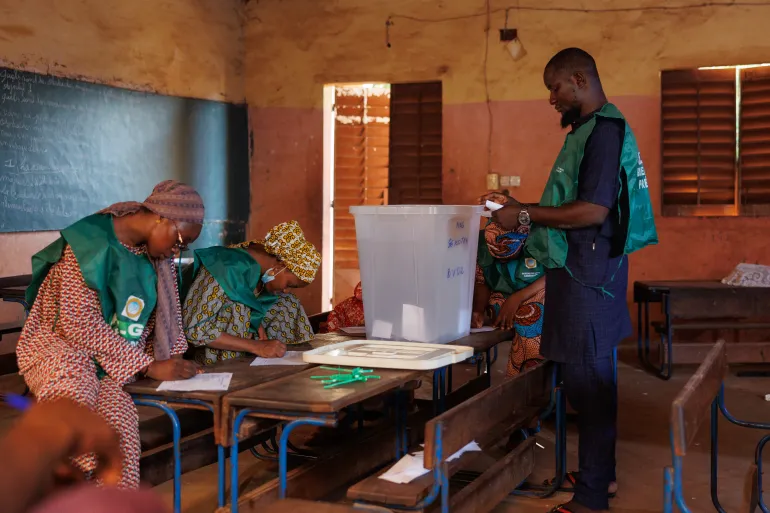The provisional results of Mali’s constitutional referendum have been affirmed by the Constitutional Council, endorsing a significant victory for the “yes” voters. With 96.91% of the vote in support, the drafted constitution, which sets a timetable for reforms and consultations preceding the presidential election, has been effectively adopted.
Amadou Ousmane Touré, President of the Constitutional Court, announced the result, stating, “It appears that the draft Constitution submitted to the electorate on June 11 and 18, 2023, was adopted by the said electorate. Therefore, Article One declares that the sovereign people of Mali have adopted the draft Constitution submitted to referendum on June 18, 2023.”
The new constitution fortifies the powers of the President and significantly highlights the armed forces, embodying the junta’s mantra of ‘sovereignty’ since its ascension. This shift follows Mali’s break with France, the previous dominant power, and subsequent turn towards Russia.
This eagerly anticipated announcement dashes the hopes of opposition groups who sought to annul the referendum. Critics of the initiative characterise it as a scheme tailored to maintain the power of the ruling military beyond the February 2024 presidential elections, contradicting their initial pledge to transition control to civilians post-elections.
The umbrella organisation, United Front Against the Referendum, exposed irregularities in both the results and the turnout of the ballot. Mohamed Kimbiri, a national representative of the ‘No’ movement, remained defiant, stating, “Now you think we’ve lost. We didn’t lose, because with over 3 [percent] of the whole population, I think that for a start, it’s a very good thing.”
This initial ballot following the military coup in August 2020 marks a critical stride towards reinstating civilian rule by March 2024. The military government in Mali has adopted a new constitution amplifying the powers of both the President and the armed forces.
In addition to creating a senate, the new constitution downgrades French from an official language to a working language.
The opposition movement has lambasted these reforms, despite the electoral commission asserting that 97% of the votes cast in last month’s referendum backed them. The official body reported a turnout of 38%.
These changes have sparked concerns that the generals could find it easier to renege on their promise of returning power to civilian leadership after the presidential election in February 2024.
Interim President Col Assimi Goïta now has the power to prescribe government policy and dissolve parliament under the new constitution.
The Constitutional Court dismissed a legal case aiming to annul the referendum results due to the vote not being held universally across Mali.
Numerous irregularities and violations of the law should also result in the referendum’s invalidation, as per Mali’s opposition movement, which consists of political parties and civil society organisations.
Ismaël Sacko, the leader of the recently dissolved Social Democratic Party, labelled it as “a plot on democracy” and called on Mali’s judiciary to “get its act together”, as reported by AFP.
The military junta enjoyed widespread popular support when it seized power amidst mass protests against then-President Ibrahim Boubacar Keïta three years ago. However, data indicates that since then, the military government has seen limited progress in combating Islamists controlling parts of the country.
Despite this, the government insists the new constitution will impede the 11-year jihadist insurgency.
In an interesting development, Mali recently dismissed all 12,000 UN peacekeepers and is believed to have employed 1,000 Russian mercenaries from the Wagner group for additional security. France’s soldiers were instructed to withdraw last year, which has sparked an increasing resentment towards the former colonial power and its current relationship with Mali and West Africa more broadly.
Image Credit: Ousmane Makaveli/AFP





